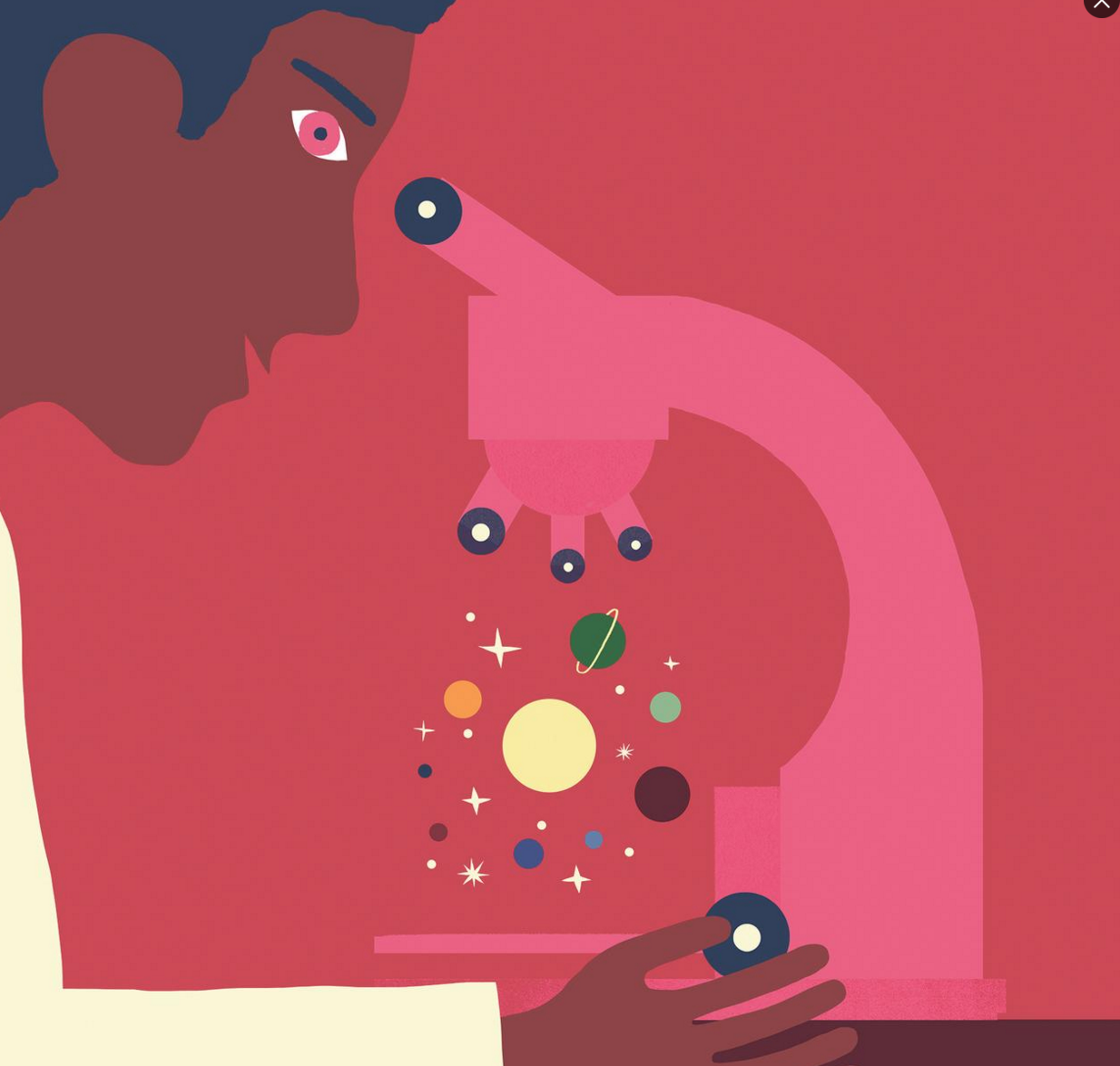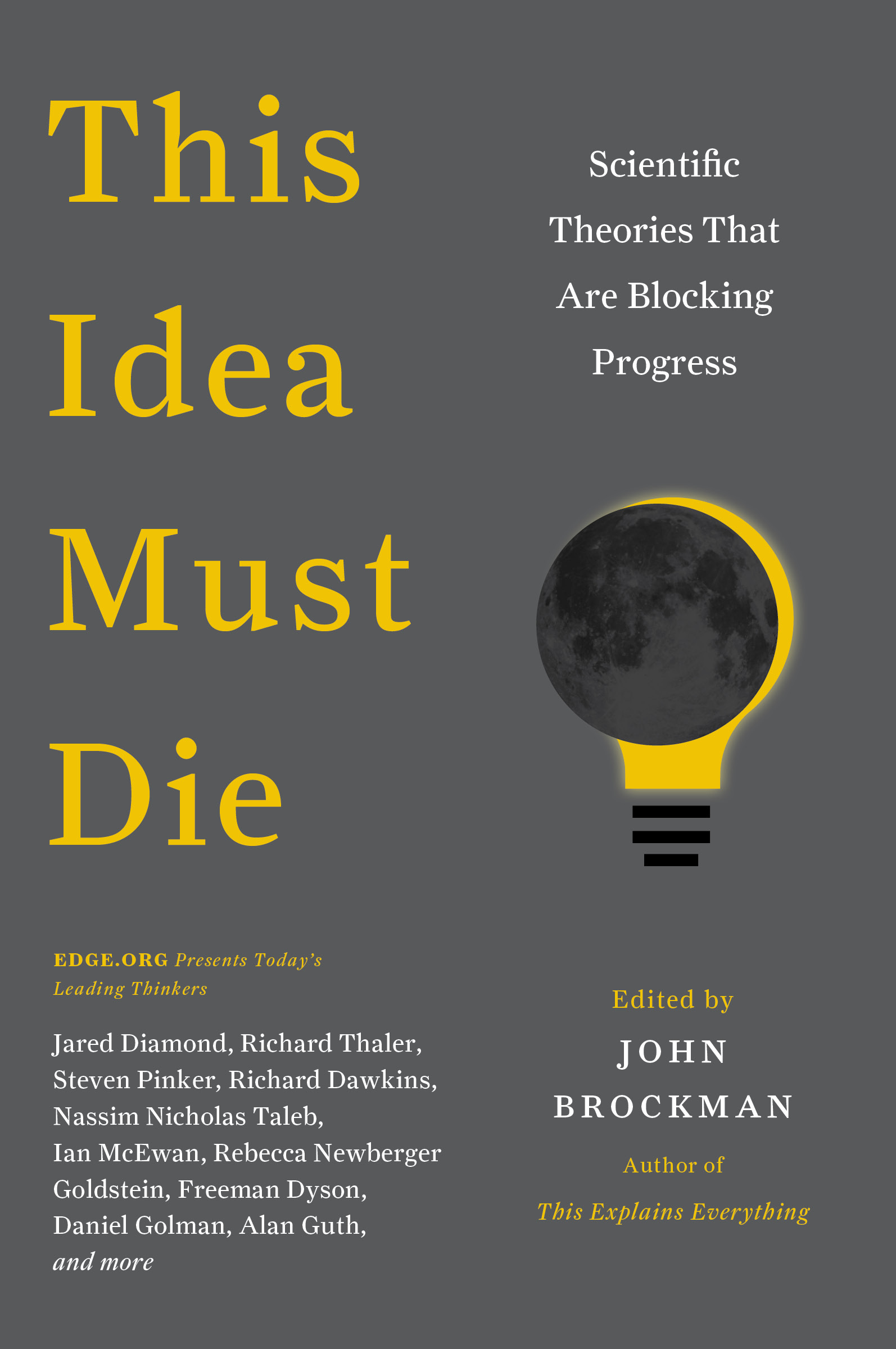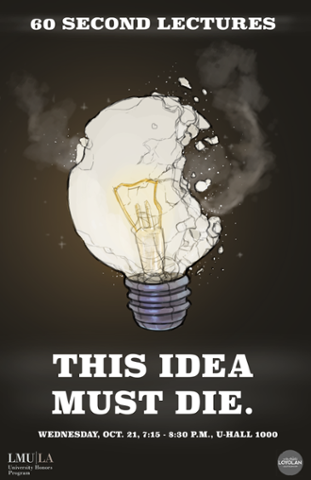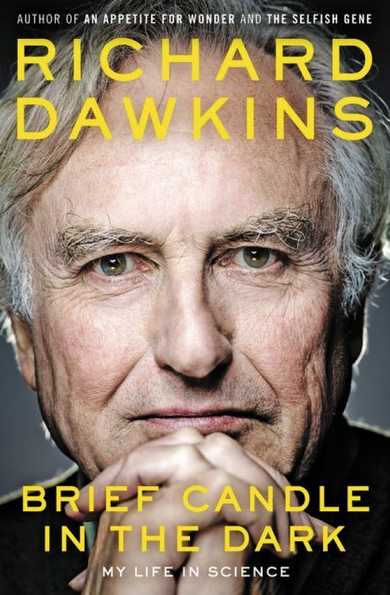Edge in the News

Big advances in astronomy and genetics

Every year on the website Edge, scientists and other thinkers reply to one question. This year it’s “What do you consider the most interesting recent news” in science? The answers are fascinating. We’re used to thinking of news as the events that happen in a city or country within a few weeks or months. But scientists expand our thinking to the unimaginably large and the infinitesimally small.
Despite this extraordinary range, the answers of the Edge contributors have an underlying theme. The biggest news of all is that a handful of large-brained primates on an insignificant planet have created machines that let them understand the world, at every scale, and let them change it too, for good or ill. ...

Advances in biology and cosmology have dominated the science year

Growing a “brain in a dish”, the prospect of creating designer babies, and the possibility of detecting the first signs of extra-terrestrial intelligence – these are just some of the most important scientific news stories of 2015, according to some of the world’s leading scholars celebrating the year’s achievements.
The question posed to the top thinkers was this: what do you consider the most interesting recent scientific news and what makes it important? Back came a smorgasbord of essay-length answers from more than 100 contributors to Edge.org, the online salon for scientists, philosophers and followers of the “third culture” merging science and the humanities. ...
Read highlighted contributions from: Mark Pagel, George Church, Simon Baron-Cohen, Alison Gopnik, Mario Livio, Martin Rees.


Just about everyone, no matter how tech-enamored or word-weary, appreciates receiving a book as a holiday gift. So, we decided to ask local booksellers which titles have been flying off their shelves — and see whether they had any special recommendations for hidden gems. ...
Jane Stiles at Wellesley Books added that the novels “The Japanese Lover” by Isabel Allende and “Avenue of Mysteries” by John Irving were popular gift choices this year. At Papercuts J.P., one of the area’s newest bookstores, owner Kate Layte said nonfiction has been very popular this year, including many of the titles already mentioned, along with Helen MacDonald’s memoir “H Is for Hawk.”
In addition, Layte said, “there are some great paperback originals I’ve been selling lots of like ‘An Indigenous Peoples’ History of the United States’ by Roxanne Dunbar-Ortiz, ‘The Best American Infographics 2015’ — the editor, Gareth Cook, lives here in JP — and John Brockman’s new collection of essays, ‘What to Think About Machines That Think: Today’s Leading Thinkers on the Age of Machine Intelligence.’ ” A special favorite in fiction is “Katherine Carlyle” by Rupert Thomson. “When folks see the blurbs from James Salter and Phillip Pullman, they can rest assured they’re holding a treasure,” she added. ...

Why should AI scare us? Let’s compare natural vs. artificial intelligence, using Edge’s 2015 big question: What to think about machines that think?
... Alison Gopnik feels machines aren’t nearly “as smart as 3-year-olds.” While AI sometimes outwits Garry Kasparov, it needs millions of pictures (labeled by humans) to learn to recognize cats. Infants need a handful (amazing pattern detectors, + see what babies know, butscientists often ignore). ...
Christmas is coming, and the shopping list is getting fat. So we’re here to give you a hand with at least the ideas stage.
Here at Siliconrepublic.com, we’ve spent the last few weeks creating lists of books that the sci-tech lovers in your life will, well… love.
Our first foray into the world of the must-read saw us pointing you in the right direction on books for those who just can’t get their fill of science knowledge – a serious look at the world of science and technology, if you will.
With this latest list, we look at the other side of that coin. Plenty of knowledge here, too, but with a slightly different flavour.
Compiled by John Brockman, publisher of website Edge.org, This Idea Must Die brings together some of the planet’s leading thinkers and asks them, "What scientific idea is ready for retirement?"
Asking the question of 175 of the world’s leading scientists, artists and philosophers, Brockman elicited answers from a huge range of people. … The most famous book produced from the series is likely This Explains Everything, which was published in 2012, while What To Think About Machines That Think has just been published.

The implications of this research, the methods, and ideas are enormous: imagine having the ability to help make political, economic, and educational decisions. The interesting thing is that the supers are not geniuses, or experts in quantum physics, or macroeconomics, they're common people—filmmakers, mechanical or dance teachers,but they are especially vigilant and rational in discerning and processing the available evidence. And how does one become a superforecaster? Tetlock recently offered a course of 5 classes (available whole in edge.org). In these class discussions, the tournaments, counterfactual thinking ("what if?"), and what we have learned about human behavior with these techniques are discussed. ...


From a blog post, “A Message From Paris,” by British novelist Ian McEwan for edge.org, Nov. 14:
The death cult chose its city well—Paris, secular capital of the world, as hospitable, diverse and charming a metropolis as was ever devised. And the death cult chose its targets in the city with ghoulish, self-damning accuracy—everything they loathed stood plainly before them on a happy Friday evening: men and women in easy association, wine, free-thinking, laughter, tolerance, music—wild and satirical rock and blues. The cultists came armed with savage nihilism and a hatred that lies beyond our understanding. Their protective armour was the suicide belt, their idea of the ultimate hiding place was the virtuous after-life, where the police cannot go. (The jihadist paradise is turning out to be one of humanity’s worst ever ideas; slash and burn in this life, eternal rest among kitsch in the next).
Paris, dazed and subdued, woke this morning to reflect on its new circumstances. ...
On the Web, reputation is a critical currency. But reputation is tricky. The way it's measured changes from platform to platform, network to network. And the way we evaluate the reputation of people, products, companies, information, and even the reputation systems, is affected by our own biases. Big time. Gloria Origgi literally wrote the book on reputation, titled La Reputation. A researcher at the Centre Nationale de la Recherche Scientifique in Paris, Origgi is a philosopher, cognitive scientist, novelist, and journalist. Over at my friend John Brockman's essential site EDGE, Origgi tackles the big question of "What is reputation?"

Wednesday, Oct. 21: The Loyolan is hosting its second annual "60 Second Lectures" event, co-sponsored by the University Honors Program. Professors from various schools at LMU will deliver lectures on ideas in their field that "must die" in the span of one minute, focusing on the central theme of "This Idea Must Die." "60 Second Lectures" will start at 7:15 p.m. in UHALL 1000.

When Ada Lovelace and Charles Babbage invented the world’s first computer, their “Analytical Engine” became the evolutionary progenitor of a new class of human extensions — machines that think. A generation later, Alan Turing picked up where they left off and, in laying the foundations of artificial intelligence with his Turing Test, famously posed the techno-philosophical questionof whether a computer could ever enjoy strawberries and cream or compel you to fall in love with it.
From its very outset, this new branch of human-machine evolution made it clear that any answer to these questions would invariably alter how we answer the most fundamental questions of what it means to be human.
That’s what Edge founder John Brockman explores in the 2015 edition of his annual question, inviting 192 of today’s most prominent thinkers to tussle with these core questions of artificial intelligence and its undergirding human dilemmas. ...
What to Think About Machines That Think is an immeasurably stimulating read in its entirety, exploring the intersection of science, philosophy, technology, ethics, and psychology to unravel some of the most important questions worth asking. ...

In Richard Dawkins’s first memoir, An Appetite for Wonder (2013), he described losing his virginity, at the somewhat advanced age of 22, to a cellist in London.
His writing about this episode was typical of him. First he called upon science. “It isn’t difficult for a biologist to explain why nervous systems evolved in such a way as to make sexual congress one of the consistently greatest experiences life has to offer,” he said. “But explaining it doesn’t make it any less wonderful.”
Then he summoned literature and morality, and wrote: “I’ll say no more on the subject, and will betray no confidences. It isn’t that kind of autobiography.”
Mr. Dawkins’s sequel to his memoir has arrived, and it isn’t that kind of autobiography either. Brief Candle in the Dark: My Life in Science presents a public life more than a private one.
This is autobiography as intellectual victory lap. What it lacks in intimacy it mostly makes up for with wit and bounce and a sense that this deeply learned man is running for mayor of our brains. ...
...Two threads stand out from the many. The first is his longing to bridge the divide between science and literary culture. The second is the author’s emergence, with his best-selling book The God Delusion (2006), as the most famous atheist on Earth.
Mr. Dawkins laments that scientists in fiction, “from Dr. Frankenstein to Dr. Strangelove,” are generally portrayed as “heartless eccentrics, gradgrinds, psychopaths or worse.”
His favorite evenings are those he calls “third culture,” that is, scientists sharing a bottle or two with word people. Living novelists who write well about science, he suggests, include Mr. McEwan, A. S. Byatt, Philip Pullman, Barbara Kingsolver, Martin Amis and William Boyd. …

BergamoScienza is an event much loved and shared, with lectures, workshops and a large involvement of the community, schools and young people. ...
...It is therefore essential that the candidates for the leadership of the twenty-first century possess a vision of things to retrieve the value of critical thinking, the entrepreneurial approach, the gift of creativity and at the same time understanding the tools that scientific progress has made available.
In this regard, John Brockman, a unified vision of knowledge, introduced the idea of Third Culture as the set of scientists and thinkers who through their work and their writings know say new and interesting things about the world and ourselves. And they do it by telling and disseminating their ideas directly to a wide audience, spreading it beyond the narrow confines of the academy or endorsements extreme.

...So who made the final cut? Mr Ricuperati noted that “most teach in one way or another” but that there were “relatively few academics” (see below) – although there are a fair number of scientists and Noam Chomsky, for example, had to be included as “a ground-breaking scientist and political commentator and public intellectual”.
While they hoped to avoid stars, it proved impossible to exclude David Byrne of Talking Heads or musician and record producer Brian Eno because “the algorithm went mad for them and they are cross-disciplinary heroes”.
Others who made the grade were Nigerian novelist and feminist Chimamanda Ngozi Adichie, human rights activist Ayaan Hirsi Ali and singer Laurie Anderson; film directors Paul Thomas Anderson and Wes Anderson; critic and novelist John Berger, computer scientist Sir Tim Berners-Lee, literary agent and science publicist John Brockman; and so on through the rest of the alphabet.
Taken together, as Mr Ricuperati puts it in the book, he hopes that they represent “the most adventurous intellectuals, both today’s and tomorrow’s” who are “trying, with visionary pragmatism, to move between one discipline and another without ever losing the reins of their language of origin”....

We all have worries. But as trained observers, scientists learn things that can affect us all. So what troubles them should also trouble us. From viral pandemics to the limits of empirical knowledge, find out what science scenarios give researchers insomnia.
(Inspiration for this episode comes from the book, What Should We Be Worried About?: Real Scenarios That Keep Scientists Up at Night edited by John Brockman.)

The weekend of July 30, a group of intellectual heavyweights met at a beautiful vineyard in California's Napa Valley. Their agenda was modest: learn how to predict the future. ...The "class," organized by Edge, was led by Philip Tetlock, a University of Pennsylvania psychologist who has made the study of prediction his life's work. For the past several years, Tetlock and his colleagues have been running a project supported by the US intelligence community. Their goal is to find ways to accurately predict major events in world affairs, such as whether Vladimir Putin will lose power in Russia.
Now they're sharing what they've found with the world.The results are astonishing: Tetlock's team found out that some people were "superforecasters" who, when placed in teams, can produce a surprisingly good track record at predicting the future of world affairs. And Tetlock thinks he might know why. ...
Tom Friedman vs. Bill Flack. One is a noted columnist, the other an irrigation specialist. One is world-famous, the other a nobody. Yet Flack is better at forecasting the future...

Big History, since the nineties in the making, if you do not want to go back to Alexander von Humboldt's "Cosmos", operated a popular interest. The Israeli military historian Yuval Noah Harari was with his lectures on the history of mankind an overnight Youtube star. David Christian, the Grand Master of metadiscipline students running down the door, when he offered his standard work "Maps of Time" at the Australian Macquarie University as a lecture. ...
The History Channel is currently running a ten-part series, which is based on Christian concept. From the Third Culture to the publisher John Brockman of Energizers Christian and ascetic Harari were welcomed with open arms. Christian was allowed to perform his mission to an enthusiastic audience of Californian Ted Talks. Here, the circuit closed to world improvement dreams of the Californian Ideology. Big History transported also an ethical and anthropological message. What is man, in what context it moves? Such questions arise as if by magic, if you put him in the cosmic appearance. ...

Daniel Kahneman & Philip Tetlock et al | Edge | 12th August 2015
Expert discussion of forecasting. First case study: The raid which killed Osama Bin Laden. “It’s an interesting fact that in very high stakes national security debates people don’t think it’s possible to make very granular probability estimates. They seem to act as though ‘things are going to happen’, and there’s ‘maybe’ and ‘things aren’t going to happen’. They act as though there will be only three levels of uncertainly”

WALLACH: It reminds me of—we talked about this when we went to a concert a few months ago—this guy John Brockman, who's the agent to all the top scientists in the world. One of the things he said was when he was in the '60s hanging out with Andy Warhol, and all of these top physicists, and people who now seem amazing in retrospect, he made a decision that he was going to treat those people like they were important. He and his friends were somehow "required" to become the people from their moment. He thought, "I'm going to start thinking of my friend who's a writer as Hemingway."





